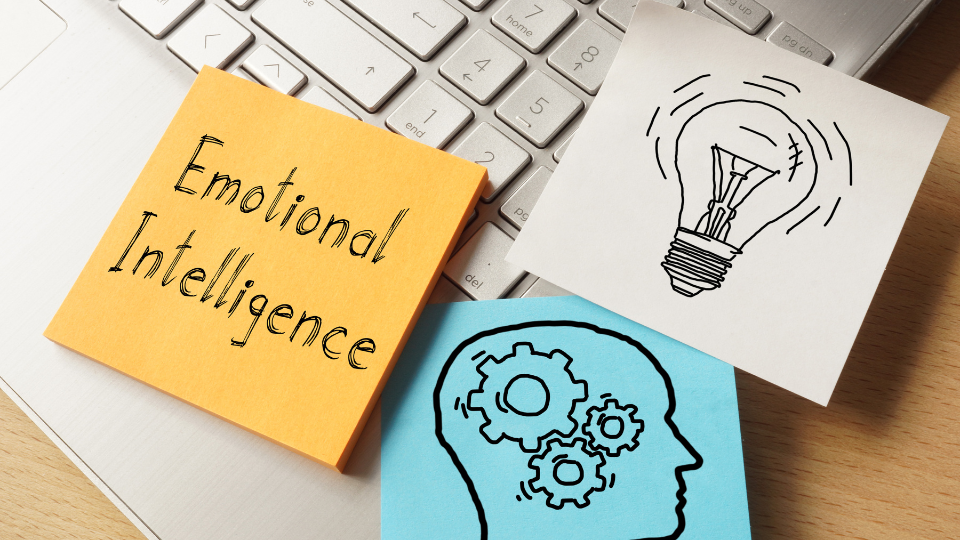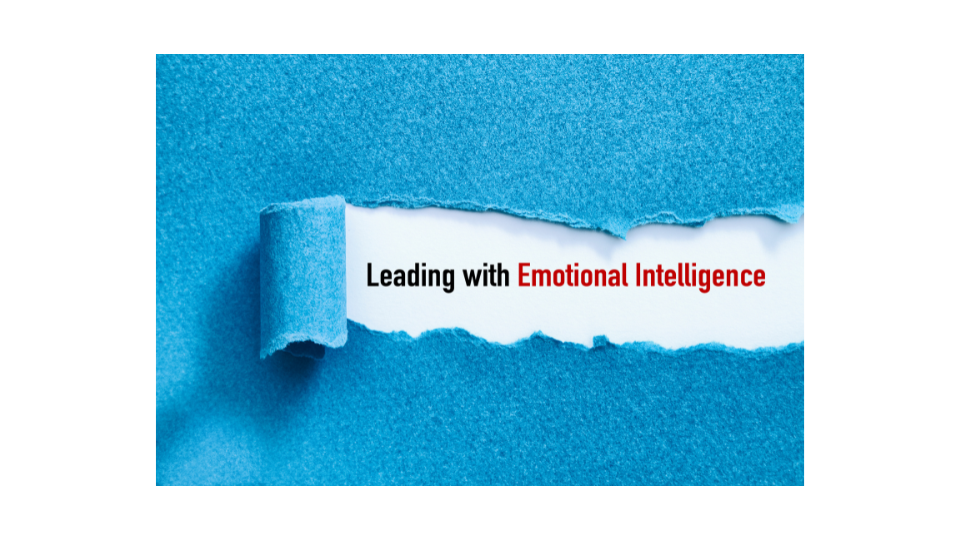Emotional intelligence (EI) has emerged as a pivotal concept in understanding human behavior and interpersonal relationships. It refers to the ability to recognize, understand, and manage our own emotions while also being attuned to the emotions of others. In a world where effective communication skills and collaboration are essential, EI plays a crucial role in fostering healthy relationships, both personally and professionally.

This comprehensive review aims to delve into the definition of emotional intelligence, its components, while discovering how EI can be developed. Besides that, this article will also focus on the various assessment methods, significance and examples in various contexts. By understanding emotional intelligence in depth, readers will be better equipped to harness its power for personal growth and improved interactions with others.
Emotional intelligence, often abbreviated as EI or EQ (emotional quotient), refers to the capacity to recognize, understand, and manage our own emotions while also being attuned to the emotions of others. This multifaceted ability encompasses a range of skills that allow individuals to navigate social complexities and make informed decisions based on emotional awareness. At its core, emotional intelligence is about blending cognitive reasoning with emotional insight, enabling individuals to respond to situations in a balanced and effective manner.
The five core components of emotional intelligence, as identified by Daniel Goleman, include self-awareness, self-regulation, motivation, empathy, and social skills. These emotional intelligence skills form the foundation of EI, enabling individuals to thrive both personally and professionally.
Self-awareness refers to the ability to recognize and understand one’s own emotions, strengths, and weaknesses, which is essential for personal growth and effective decision-making. It is a crucial emotional intelligence habit that allows individuals to reflect on how their emotions influence their thoughts and behaviors.
Self-regulation involves managing one’s emotions and impulses, allowing individuals to respond to situations thoughtfully rather than reactively. This skill fosters a sense of control and stability in various circumstances, helping individuals maintain clarity and purpose in their actions.
Motivation, the third component, is characterized by an intrinsic drive to achieve goals and maintain a positive outlook, even in the face of challenges. This habit not only propels individuals toward success but also influences their ability to inspire and lead others, especially when facing obstacles.

Empathy, another crucial element, is the capacity to understand and share the feelings of others. By cultivating emotional intelligence skills like empathy, individuals can connect with others on a deeper level, fostering understanding, compassion, and support in relationships.
Lastly, social skills encompass effective communication, conflict resolution, and the ability to build and maintain relationships. These emotional intelligence skills make it easier to collaborate, navigate social complexities, and resolve conflicts effectively, contributing to healthier interpersonal dynamics.
Together, these components of emotional intelligence form the bedrock of personal and professional success, empowering individuals to navigate their emotional landscape and build stronger relationships.
Developing EI is a transformative journey that requires intentional practice and self-reflection.
One effective method is journaling, which allows individuals to explore their emotions and reactions to various situations. By regularly writing about feelings and experiences, one can gain insights into emotional triggers and patterns, fostering greater self-awareness.
Additionally, undergoing a 360-degree assessment can provide valuable feedback from peers and supervisors, highlighting areas for improvement and reinforcing strengths in emotional competencies.
Another powerful approach to enhancing EI is through active listening and empathy. Practicing active listening involves fully engaging with others, understanding their perspectives, and responding thoughtfully. This not only improves interpersonal relationships but also cultivates a deeper understanding of others’ emotions.
Furthermore, incorporating mindfulness techniques, such as meditation and deep breathing exercises, can help individuals stay present and manage their emotional responses more effectively.
By combining these strategies, individuals can develop a robust emotional intelligence skill set that enhances both personal and professional interactions.
Assessing emotional intelligence is crucial for understanding how well individuals manage their emotions and interact with others.
Various tools and tests have been developed to measure EI, with the Global Emotional Intelligence Test being one of the most recognized. This test comprises 40 questions derived from a more extensive 158-item Global EI Capability Assessment instrument, allowing for a comprehensive evaluation of an individual’s emotional capabilities.
Additionally, other popular assessments include the Emotional Capital Report and the Emotional Quotient Inventory, which focus on different aspects of emotional intelligence, such as self-awareness, social awareness, and relationship management.
The importance of EI’s assessments lies in their ability to provide insights into personal strengths and areas for improvement. For instance, the TalentSmartEQ test not only measures an individual’s emotional quotient but also offers actionable feedback to enhance emotional skills.
These assessments typically evaluate five key areas: self-awareness, self-management, social awareness, and relationship management. By utilizing these tools, individuals can gain a clearer understanding of their emotional competencies, which can lead to improved interpersonal relationships and better emotional regulation. However, it is essential to approach these assessments with a critical mindset, as results can vary based on the individual’s current emotional state and the context in which the assessment is taken.
Emotional intelligence plays a pivotal role in both personal and professional realms, significantly influencing our interactions and decision-making processes. It empowers individuals to understand and manage their emotions, leading to better self-motivation and the ability to foster positive social interactions.
By enhancing communication skills and conflict resolution abilities, EI contributes to improved relationships, whether in the workplace or at home. Furthermore, individuals with high emotional intelligence are often more adept at navigating stress and making informed choices, which can lead to greater overall well-being and satisfaction in life.

Employees with strong emotional intelligence are better equipped to handle feedback, support their colleagues, and contribute to a positive workplace culture. As such, fostering EI within teams not only enhances individual performance but also drives collective success, making it an invaluable asset in today’s dynamic work landscape.
Emotional intelligence manifests in various ways across different contexts, particularly in the workplace.
A manager who encourages team members to share honest feedback demonstrates emotional intelligence by fostering a culture of trust and openness. This approach promotes mutual respect, allowing employees to voice their opinions without fear of retribution, ultimately leading to a more collaborative and transparent workplace
An employee who responds positively to new initiatives exemplifies EI through adaptability. This ability to embrace change is crucial in dynamic environments, showcasing self-regulation and a willingness to grow alongside the evolving demands of their role.
When a colleague struggles with a project, an emotionally intelligent individual listens empathetically and provides support. This behavior illustrates empathy and effective interpersonal communication, strengthening workplace relationships and creating a supportive environment.
Understanding body language and facial expressions allows an emotionally intelligent person to respond appropriately to others’ emotions. This skill demonstrates social awareness and sensitivity, fostering better communication and stronger connections in personal and professional interactions.
In conclusion, emotional intelligence is a multifaceted concept that plays a crucial role in our personal and professional lives. It encompasses the ability to recognize, understand, and manage our own emotions while also being attuned to the emotions of others. As we have explored throughout this review, the components of EI, such as self-awareness, self-regulation, motivation, empathy, and social skills, are essential for fostering healthy relationships and effective communication.
As we continue to navigate an increasingly complex world, the importance of emotional intelligence cannot be overstated; it is a vital tool that empowers us to connect with others, manage our emotions effectively, and lead fulfilling lives. Therefore, investing time and effort into developing emotional intelligence is not just beneficial but essential for personal growth and success.